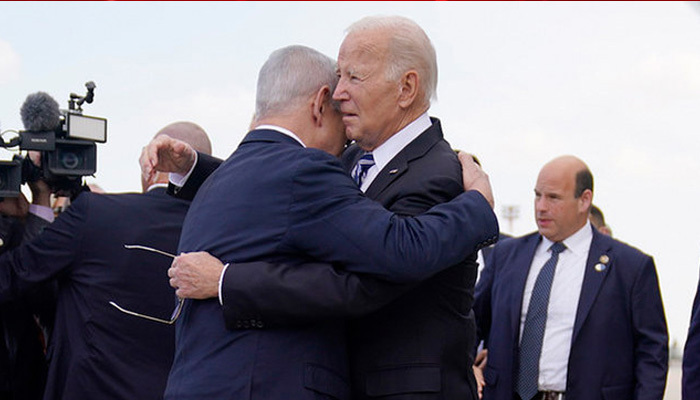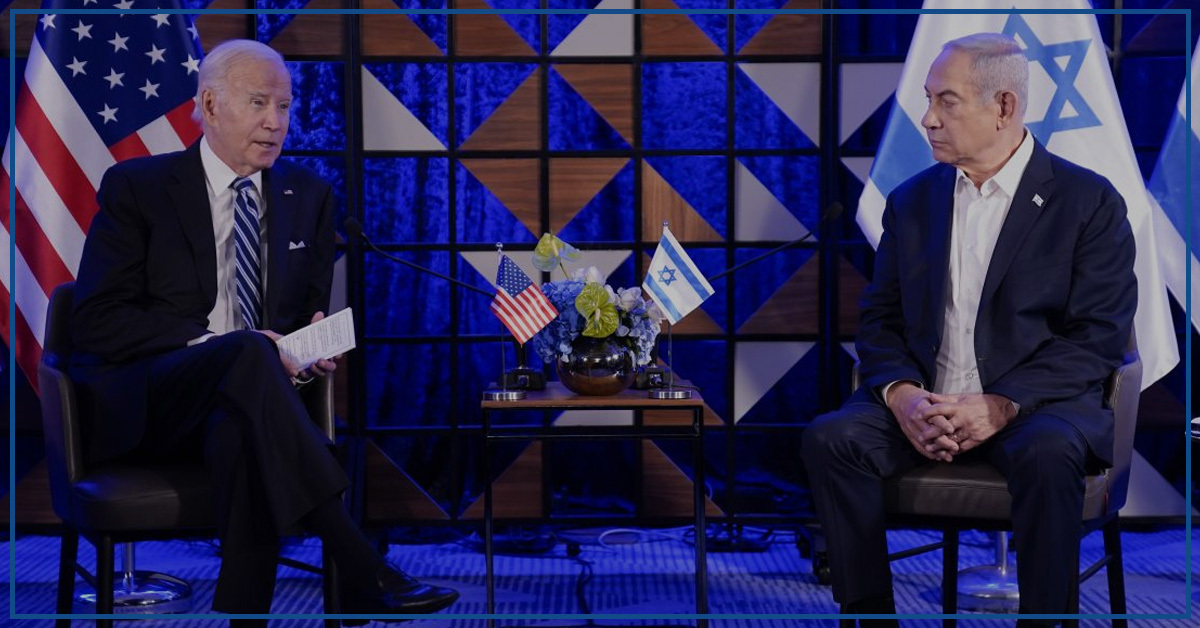President Joe Biden concluded his historic visit to Tel Aviv with a strong message of support for Israel. The trip, which marked the first visit by an American president to Israel during a time of war, was punctuated by a devastating explosion at Al-Ahli Baptist Hospital in Gaza City.
This event posed a complex diplomatic challenge for President Biden as he navigated the delicate balance between supporting Israel and preventing further escalation of violence.
President Biden met with Prime Minister Benjamin Netanyahu and other Israeli leaders during his visit. He announced new agreements, including support for a humanitarian corridor to Gaza, aid for Palestinians in Gaza and the West Bank, and a substantial congressional request for funding Israel’s defense.
In a primetime speech, he discussed the U.S. response to Hamas’ terrorist attacks against Israel and Russia’s ongoing war in Ukraine.
In his first public remarks regarding the hospital bombing, President Biden expressed his condolences and offered his support to Israel. He acknowledged the complexity of the situation, stating, “I was deeply saddened and outraged by the explosion at the hospital in Gaza yesterday. From my observations, it seems that the responsible party was different from your side. However, there is considerable uncertainty among many regarding this matter. So we have to overcome a lot of things.” He later attributed the blast to an “errant rocket fired by a terrorist group in Gaza,” citing information from the U.S. Defense Department.
While President Biden’s visit demonstrated unwavering support for Israel, it also highlighted the need for a balanced approach. He emphasized the importance of coming to Israel personally to send a signal to other democratic nations and to reassure the world about the United States’ stance on the Middle East situation.
The hospital explosion, which Palestinian officials attributed to Israel and Israelis attributed to a failed rocket launch by Palestinian Islamic Jihad, cast a shadow over the trip. President Biden urged caution, calling for a deliberate approach to protect civilians as humanitarian conditions deteriorate in Gaza.
He also warned against the diversion or theft of humanitarian aid by Hamas, stating that such actions would halt international assistance to the Palestinian people. President Biden unveiled a $100 million allocation of fresh funding from the U.S. funding for humanitarian aid in Gaza and the West Bank and promised to request an “unprecedented support package for Israel’s defense” from Congress.

Despite the U.S. President’s show of support for Israel, he faces political pressure at home over his response to the conflict. A CNN poll revealed varying public opinion on the Israeli government’s response to the attacks, making it a challenging situation for President Biden.
The decision to travel to Israel so soon after the Hamas attack underscores the emotional impact of the ongoing conflict on President Biden. He compared the October 7 attacks to the Holocaust and the September 11, 2001, terror attacks. He emphasized the need to learn from history and not stand by in the face of violence and persecution.
As the world watches the events unfold in the Middle East, President Biden’s visit signifies a critical moment in the ongoing conflict, where the delicate balance between support for Israel and the protection of civilians remains paramount.
With a deep sense of sympathy and responsibility, President Biden acknowledged the immense challenges and complexities that both Israel and the United States face in the region. He stressed the need for a measured and considerate approach, recognizing the profound impact that violence and conflict have on the people involved.
In conclusion, President Biden’s visit to Israel during this time of war represents a significant and challenging diplomatic endeavor. Balancing support for Israel, protecting civilians, and addressing the humanitarian crisis in Gaza is a complex task.
His personal commitment and determination to navigate these challenges demonstrate the United States’ unwavering support for its closest allies and its dedication to promoting peace and stability in the Middle East.
As the world watches, the President’s actions and words will continue to shape the events in this troubled region.





